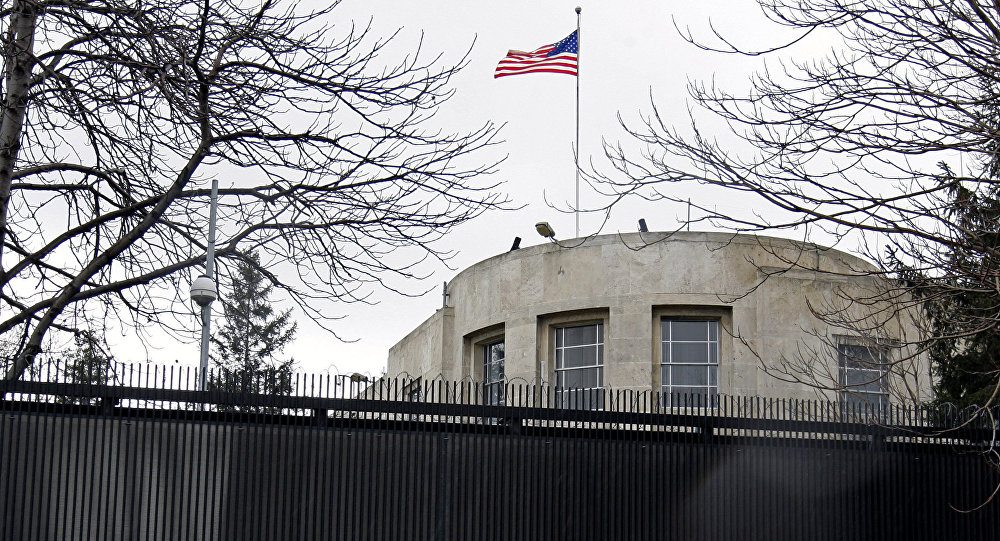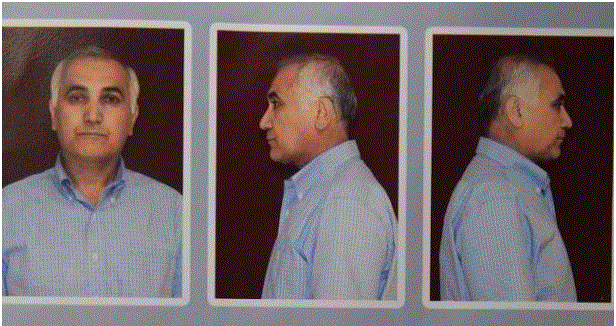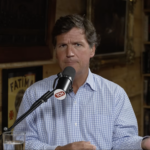Most young men and women at the century’s end grow up in a sort of permanent present lacking any organic relation to the public past of the times they live in.
— Eric Hobsbawm, Age of Extremes: 1914-1991.
In the previous article I explained the general background to the polarized political situation in the U.S. media. For at least twenty years a loud conservative press has existed in the U.S. which targets the two primary constituencies of the Republican Party — the wealthy, and the conservative rural whites. And the viewership of Fox News is by far the largest of any news channel in the U.S. For example, during the week leading up to the recent U.S. election, the categories of most-watched cable channel, most-watched cable news channel, and the top five viewed cable news programs all belonged to Fox News (1).
One could then argue that the “Big Three” networks of ABC, CBS, and NBC still have larger viewerships than Fox News, which is true. But those networks feature news only in the traditional evening slot for thirty minutes or an hour, whereas Fox News is a 24-hour news channel. Furthermore, those networks are traditionally centrist in political outlook, and have not changed. As an illustration, one can look at what the main networks covered in relation to the 2016 presidential campaign, and see that little attention was given to policy issues. Instead, most attention was given to scandals that were in actuality nothing of the sort (2). And the newspapers, such as the NYT, which are supposedly biased towards Hillary Clinton? Research shows that they actually treated Trump more favorably as the campaign reached its end (3).
My point in explaining all of this is the following: Accusations of a “liberal U.S. press” preventing Americans from understanding “the truth” is a right-wing narrative that has been present in the U.S. media since the 1990s. It is neither new, nor a reflection of the media reality in the U.S. In fact there is a high-volume, prolific, and influential conservative press in the U.S. which supported Donald Trump every inch of the way during the 2016 presidential campaign. Fox News is the vanguard, but there are also other newspapers, magazines, and internet news sources that are just as ubiquitous as the NYT, and highly committed to pushing a particular political interpretation. Take a look at Breitbart (4), for example. Breitbart’s chairman, Stephen K. Bannon, became Trump’s top campaign manager after a point, and now, as a reward, has been made chief White House strategist and senior counselor (5). This will be an unprecedented direct connection between a media outlet and the White House.
Now I want to turn to the errors in Turkish press interpretations of the recent U.S. election. What my explanation about the U.S. press means, first, is that unlike the impression that many in the Turkish press have, U.S. media are not dominated by a single perspective. Until the mid-1990s the U.S. media had long been quasi-monolithic, but the situation has changed dramatically since then. Furthermore, when Turkish commentators turn critical on this issue, what they are frequently comparing the U.S. liberal media with is the pro-Kemalist Turkish media, which means the newspapers Cumhuriyet, Sözcü, and Hürriyet, or even leftist or left-nationalist (ulusalcı) publications like Sol or Birgün. This is the yardstick that they have in mind, and which leads them to think that the liberal press in the U.S. must be as bad as their Turkish “counterparts.”
But in reality, the problems that have come to saddle Turkish media outlets are on a very different scale from those of, for instance, the NYT. With possibly the sole exception of Hürriyet, those “secular” Turkish papers are political propaganda sheets and not much more, but the NYT is a solid and generally fair source of news. With respect to Turkey, as I‘ve pointed out repeatedly over the past two years, the NYT’s editors have lost their marbles, but on most other issues their publication is still one of the most dependable. Simply, there is no body of U.S. media outlets even remotely comparable to the “secular” Turkish press — unless one wants to explore the fringe militant papers sold on university campuses that have a circulation of 10,000 in a society of 320 million. The Workers’ World or the People’s World come to mind. The Village Voice has a circulation of 120,000 but is relevant mainly to the New York metropolitan area. Liberal-left magazines like the Nation or Harper’s Magazine do exist, but their circulations are the same as or smaller than the Village Voice’s, and tiny in comparison to the readerships of Time or Newsweek.
That brings us to a second myth, that those who voted for Trump are the poor and oppressed. The history and socio-political construction of American and Turkish societies is completely different, which also means that voter demographics and choices are different. In actuality, some of Trump’s voters are just as often America’s wealthiest and most powerful citizens because the Republican Party’s voters include that section of U.S. society. Trump himself was born into great wealth, and has been a prominent media and society figure since the 1980s. How has American society always known Trump? As a proud member of the ultra-rich, devoted only to self-aggrandizement. The idea of Trump running for president first surfaced in 1987, in the middle of the “Decade of Greed.” Because of Trump’s elitist, unsavory, blowhard character, Garry Trudeau, author of the famous satirical strip Doonesbury, was already lampooning Trump in the late 1980s. I never forgot Trudeau’s strip from 31 December 1989 (6) because it summed up everything wrong with Trump (and his admirers) at the time.
I assume that those in Turkey who have felt sympathy for Trump would not approach the matter so blithely if they were to take a closer look at what he actually stands for. Turkish anger towards the Obama Administration’s foreign policies is completely justified, and the U.S. government’s lackadaisical attitude towards the Gülen cult is offensive and unacceptable. But that anger should be tempered by Trump’s amoral behavior, his irresponsible stances on important issues, and the likelihood that neo-conservative influence over U.S. foreign policy will be re-established — and things will become possibly worse for Turkey. In contrast, and for all of President Obama’s egregious foreign policy mistakes, the Obamas are easily the purest family example to occupy the White House in decades.
Finally, what fuels the ongoing protests in the U.S. is a more basic reality. And here I want to speak as someone who grew up in states in the U.S. West that are as Red (i.e. Republican) as any in the nation. Beyond all of the heat and noise about exactly who voted for Trump and for what reason, is the simple fact that those who voted for Trump voted with full cognizance of Trump’s policy stances. True, economic factors and resentment may have played an important role, but in the end they were aware of Trump’s racism, Islamophobia, long history of harassment of women, and xenophobia. I’m saying something exactly the opposite of the nastiness about “ignorant or uneducated” voters: Trump’s voters knew exactly what they were doing. That’s why a wave of racial attacks started earlier this year and peaked immediately following the election (7) even though Hillary Clinton’s victory margin in the popular vote will ultimately be more than one million votes. The election result confirmed the opinions that Trump’s voters already held, and exhibited clearly that U.S. society still has serious problems with racism, chauvinism, and other types of bigotry. In Turkey, those feeling a surge of schadenfreude should know that approval for Trump’s victory is a far broader issue that just Gülen’s potential extradition — it also means approval for the stances and policy platform that Trump campaigned on.
NOTES
(1) http://www.medialifemagazine.com/this-weeks-cable-ratings/
(5) http://www.nytimes.com/2016/11/14/business/media/breitbart-reveling-in-trumps-election-gains-a-voice-in-his-white-house.html?_r=1; http://www.slate.com/articles/news_and_politics/politics/2016/11/donald_trump_s_pick_of_stephen_bannon_means_white_nationalism_is_coming.html
(6) http://www.gocomics.com/doonesbury/1989/12/31
(7) http://www.nytimes.com/2016/11/12/us/reports-of-bias-based-attacks-tick-upward-after-election.html?_r=1; http://www.nytimes.com/2016/11/14/us/politics/donald-trump-transition.html?hp&action=click&pgtype=Homepage&clickSource=story-heading&module=a-lede-package-region®ion=top-news&WT.nav=top-news; http://www.slate.com/blogs/the_slatest/2016/11/13/a_list_of_racist_incidents_across_the_united_states_since_donald_trump_was.html; https://www.splcenter.org/hatewatch/2016/11/11/over-200-incidents-hateful-harassment-and-intimidation-election-day
Yazıyı beğendiysen, patronumuz olur musun?
Evet, çok ciddi bir teklif bu. Patronumuz yok. Sahibimiz kar amacı gütmeyen bir dernek. Bizi okuyorsan, memnunsan ve devam etmesini istiyorsan, artık boş olan patron koltuğuna geçmen lazım.
Serbestiyet; Türkiye'nin gri alanı. Siyah ve beyazlar içinde bu gri alanı korumalıyız. Herkese bir gün gri alanlar lazım olur.




















